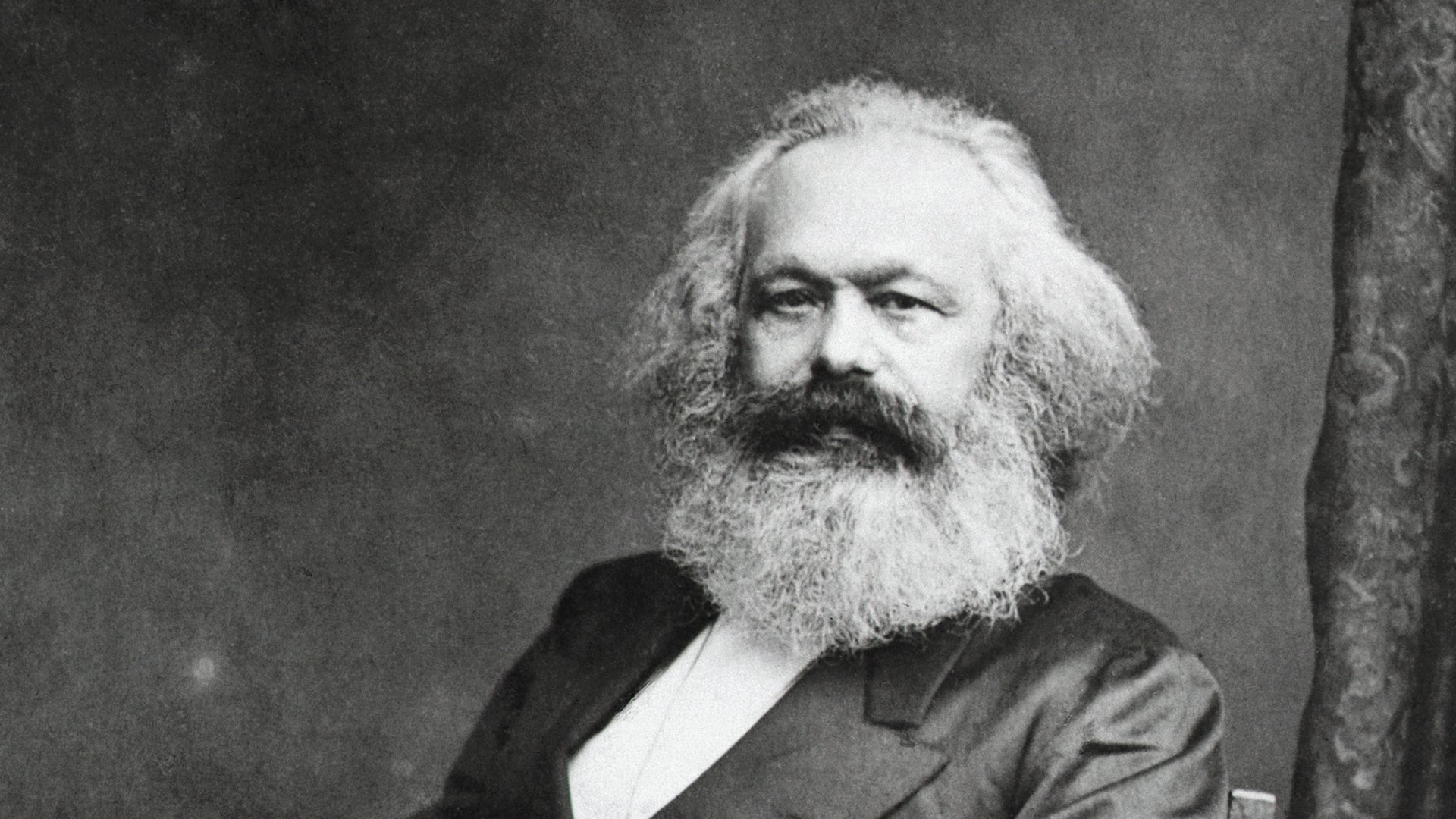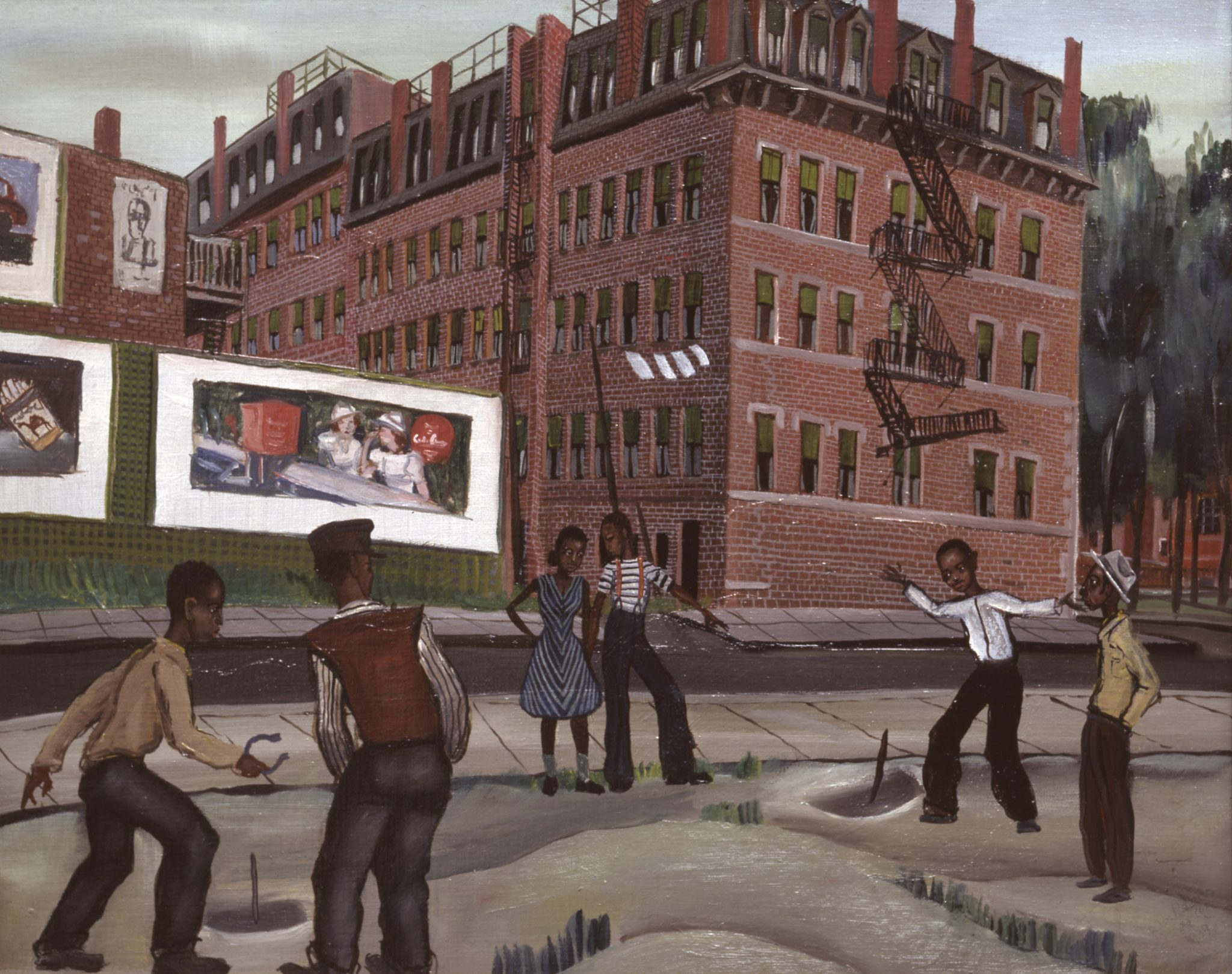- Instructor: Leslie King
Smith College's Moodle
Search results: 245
- Instructor: Mehammed Mack
- Instructor: Rosetta Cohen
- Instructor: Rosetta Cohen
The ideal of American citizenship has long laid claim to universal inclusivity and openness: citizenship, as both a legal status and a political-cultural identity, are supposedly accessible to all individuals within the polity. Based on a robust concept of freedom, and grounded in a fundamental notion of equal personhood, United States citizenship promised a form of political belonging free from the kind of status restrictions that defined citizenship in the aristocracies of 18th and 19th century Europe.
Yet the history of American citizenship is one marked by the exclusion, domination, and disenfranchisement of various groups defined as racially other, and thus outside the bounds of citizenship. How do we understand the coexistence of claims to equal democratic citizenship in the U.S. alongside the historical realities of enslavement, extermination, and other forms of racial violence? What does it mean to be an American citizen, and how as that meaning been shaped by the formation of race across space and time? Is citizenship a universal concept – open, in principle, to anyone? Or is it an exclusive concept – reserved for a select few? If racial injustice is not separable from citizenship, but somehow productive of it – that is, if racist structures shape how citizenship is interpreted and practiced – then can American citizenship be remade along more egalitarian lines?
This course will interrogate these questions, asking how race and citizenship have constituted each other over time. Through readings in political theory, American political development, history, and sociology, we will examine dimensions of American citizenship that emerge with, through, and against the creation of racial hierarchies: citizenship as a legal status, as a political-cultural identity, as civic responsibilities and cultural norms, and as a particular arrangement of institutional practices that define who is “inside” and “outside” the political community. Though this course focuses on the political theory of citizenship and not a historical survey, texts will engage with indigenous sovereignty, colonial America, slavery and the antebellum period, Jim Crow, and immigration through the 19th and 20th centuries. While much of the course is devoted to exploring the historical production of “Black” and “white” as categories of political belonging, we will also consider how notions of race and citizenship have shifted and developed through the experiences of First Nations and immigrant groups.
Throughout our discussions, we will also examine how dominated and oppressed racial groups have mobilized by both adopting and challenging prevailing notions of what it means to be a citizen. At the end of the course, we will end by considering how American citizenship might be refashioned in order to promote and sustain equal freedom and racial justice.
- Instructor: Erin Pineda
- Instructor: Lane Hall-Witt
- Instructor: Tina Wildhagen
- Instructor: Pia Furkan
- Instructor: William Albertson
Why do some people go hungry and cold at night while others have four homes? Why does Facebook have targeted ads? Why do men make more money than women? Why are some drugs legal and others not? Why do women’s jeans have small pockets?
Sociologists concern themselves with these questions and many more by systematically investigating the causes and implications of certain social phenomena -- especially as they relate to systems of inequality and stratification, societal trends, group behavior, identity formation, and social context. Sociology can teach us to question taken for granted assumptions about the ways organizations, cultures, institutions, and even entire societies function -- or fail to function. As such, the study of sociology provides tools to help make sense of the social worlds around us by applying our sociological lens.
This course is designed to strengthen your ability to critically ask discuss, as well as engage with, these questions. By grappling with the core concerns of sociology as a discipline, you will learn how to ask sociological questions and apply theoretical frameworks to provide possible explanations of social issues. Viewing the the world sociologically allows us to place ourselves, as individuals, in relation to the complex structures that make up our social reality
- Instructor: Maggie Nanney
- Instructor: Timothy Recuber
- Instructor: Leslie King
- Instructor: Rick Fantasia
- Instructor: William Albertson
- Instructor: Leslie King
- Instructor: Tina Wildhagen
- Instructor: Nancy Whittier
- Instructor: Rick Fantasia
- Instructor: Nancy Whittier
- Instructor: Mary Scherer
- Instructor: Tina Wildhagen
- Instructor: Mary Scherer
- Instructor: Nancy Whittier
- Instructor: Leslie King
- Instructor: Tina Wildhagen
- Instructor: Leslie King
- Instructor: Miriam Neptune
- Instructor: Eeva Sointu
- Instructor: Leslie King
- Instructor: Nancy Whittier
- Instructor: Tina Wildhagen
- Instructor: Ginetta Candelario
- Instructor: William Albertson
- Instructor: Vanessa Adel
- Instructor: Nancy Whittier
- Instructor: William Albertson
- Instructor: Ginetta Candelario
- Instructor: Miriam Neptune
- Instructor: Tina Wildhagen
- Instructor: William Albertson
- Instructor: Leslie King
- Instructor: Ginetta Candelario
- Instructor: Vanessa Adel
- Instructor: Vanessa Adel
- Instructor: Leslie King
- Instructor: William Albertson
- Instructor: William Albertson
- Instructor: Kathleen Hulton
- Instructor: Mary Scherer
- Instructor: Mary Scherer
- Instructor: Tina Wildhagen
- Instructor: Leslie King
- Instructor: Leslie King
- Instructor: Leslie King
- Instructor: Leslie King
- Instructor: Pia Furkan
- Instructor: Paul Erb
- Instructor: Tina Wildhagen
- Instructor: Pia Furkan
- Instructor: Payal Banerjee
- Instructor: Payal Banerjee
- Instructor: Timothy Recuber
- Instructor: Pia Furkan
- Instructor: Rick Fantasia
- Instructor: Tina Wildhagen
- Instructor: Rick Fantasia

- Instructor: Erica Banks
- Instructor: Nancy Whittier
This
course is designed to give students a broader understanding of individual
actions in the social context, using what sociologist C. Wright Mills calls a
“sociological imagination.” Throughout the semester, students will learn to
apply their sociological imagination by setting aside preconceived ideas about
social relationships, and analyze how external social factors, like class, race
and ethnicity, gender, education, and community, shape people’s lives. This
course highlights the role of transnational/global flows of people, capital,
culture and economy, and encourages students to reimagine our everyday lives in
American society by connecting global forces to local contexts. Major topics
include sociological theories, methods, culture, socialization, race and
ethnicity, gender, class, education, and globalization.
- Instructor: Jinwon Kim
- Instructor: Timothy Recuber
Course objectives:
Cultivate your sociological imagination
Understand the ways in which society shapes individual lives, and how individuals shape society
Understand and apply major sociological theories
Develop a basic understanding of how sociologists do research
Identify different types of research methods
Discern which methods are appropriate for which questions
Strengthen your critical thinking and sociological writing skills
Make an argument using sound logic and empirical evidence
Write cohesive, articulate expositions
Conduct small scale sociological research paper using all of the above
- Instructor: Ginetta Candelario
- Instructor: Ginetta Candelario
- Instructor: Courtney Bouthiller
- Instructor: Timothy Recuber
- Instructor: Vanessa Adel
- Instructor: Pia Furkan
- Instructor: Tina Wildhagen
- Instructor: Payal Banerjee
- Instructor: Payal Banerjee
- Instructor: Leslie King
- Instructor: Leslie King

- Instructor: Erica Banks
- Instructor: Erica Banks
- Instructor: Courtney Bouthiller
- Instructor: Pia Furkan
- Instructor: Jenny Folsom
- Instructor: Jenny Folsom
- Instructor: Rodrigo Dominguez Villegas
- Instructor: Rodrigo Dominguez Villegas
- Instructor: Rodrigo Dominguez Villegas
- Instructor: Rodrigo Dominguez Villegas
- Instructor: Rodrigo Dominguez Villegas
- Instructor: Rodrigo Dominguez Villegas
- Instructor: Tina Wildhagen
- Instructor: Nancy Whittier
- Instructor: Tina Wildhagen
- Instructor: Nancy Whittier
- Instructor: Leslie King
- Instructor: Nancy Whittier
- Instructor: Nancy Whittier
- Instructor: Tina Wildhagen
- Instructor: Tina Wildhagen
- Instructor: Nancy Whittier
- Instructor: Nancy Whittier
- Instructor: Nancy Whittier
- Instructor: Nancy Whittier
- Instructor: Tina Wildhagen
- Instructor: Tina Wildhagen
- Instructor: Nancy Whittier
- Instructor: Rick Fantasia
- Instructor: Rick Fantasia
- Instructor: Rick Fantasia
- Instructor: Rick Fantasia
- Instructor: Jinwon Kim
- Instructor: Rick Fantasia
- Instructor: Eeva Sointu
- Instructor: Kathleen Hulton
- Instructor: Rick Fantasia
- Instructor: Leslie King
- Instructor: Leslie King
- Instructor: Leslie King
- Instructor: Leslie King
- Instructor: Leslie King
- Instructor: Vanessa Adel
- Instructor: Vanessa Adel
- Instructor: Vanessa Adel
- Instructor: Meridith Richter

Course Description and Goals
“The academy is not paradise. But learning is a place where paradise can be created. The classroom, with all its limitations, remains a location of possibility. In that field of possibility we have the opportunity to labour for freedom, to demand of ourselves and our comrades, an openness of mind and heart that allows us to face reality even as we collectively imagine ways to move beyond boundaries, to transgress. This is education as the practice of freedom.” (bell hooks in Teaching to Transgress, 1994, p. 207)
Drawing from bell hook’s inspiring quote above, this course introduces you to the vibrant field of Sociology of Gender and Globalization and its unique interdisciplinary perspectives, borrowing insights from Sociology; Women, Gender, Sexuality Studies; Anthropology; Economics, Politics and so on. This 200-level course moves beyond geographical and disciplinary boundaries, to engage with the key dimensions of global restructuring and globalization through the lens of gender, sexuality, race, class, ethnicity, and North-South relations. We will study how various modes of oppression and inequalities intersect in global manufacturing, supply chains, and in the transnational politics of representation and access in global media, religion, culture, war, and dissenting spaces. Questions that we will interrogate throughout the semester include: What is globalization and how and why is it a contested concept? Is globalization a new process? How can globalization be understood as a social, cultural, political, and ecological process and not just as a technological-economic process? How are structures of identity and oppression i.e., gender, race, ethnicity, class, sexuality, nation, religion, ability, and other forms of difference, interwoven with globalization? How do biological, cultural, historical, and political frameworks shape knowledge and processes of globalization? In exploring these questions, the course incorporates sources ranging from social science research, creative non-fiction, films/documentaries, art, media, and popular culture. Topics may include transnational feminisms, gendered labor and the global economy, feminist and queer theory, reproductive politics and globalization, carceral politics, rights-based advocacy, visual cultures.
This course will accomplish its goals by:
- Engaging students in pluralistic perspective-taking and awareness of the relationship among society, self, and others
- Providing opportunities to develop and practice the skills of critical thinking, reasoning, communication, and integration of knowledge and perspectives, including:
● Communicating persuasively and effectively in public speaking and writing
● Working collaboratively and creating safe and kind spaces for each other to teach and learn in
- Students will be expected to be self-reflective and draw from their own identities and global social issues affecting their young adult lives, using theoretical concepts and language from the course. Please remember, using personal experiences to understand academic concepts is valid and important – as the famous feminist saying goes - The Personal is Political! We should strive to use these as examples to illustrate or raise questions about readings and course debates rather than substituting anecdotes for critical thinking.
READINGS
You do not need to purchase any readings/books for this course. All reading materials will be on the course’s Moodle website and all videos will be linked on the syllabus. You would be able to access the videos required for the course for free through YouTube or the Smith Kanopy service (https://www.kanopy.com/en/smith/). The course schedule below lists the readings/videos we will cover each class day during the semester.
- Instructor: Debadatta Chakraborty
- Instructor: Nancy Whittier
- Instructor: Nancy Whittier
- Instructor: William Albertson
- Instructor: William Albertson
- Instructor: William Albertson
- Instructor: William Albertson
- Instructor: Nancy Whittier
- Instructor: Nancy Whittier
- Instructor: Nancy Whittier
- Instructor: Timothy Recuber
- Instructor: Timothy Recuber
- Instructor: Timothy Recuber
- Instructor: Timothy Recuber
- Instructor: Rick Fantasia
- Instructor: Timothy Recuber
- Instructor: Timothy Recuber
- Instructor: Timothy Recuber
- Instructor: Timothy Recuber
- Instructor: Timothy Recuber
- Instructor: Timothy Recuber
- Instructor: Timothy Recuber
- Instructor: Timothy Recuber
- Instructor: Tina Wildhagen
- Instructor: Tina Wildhagen
- Instructor: Rick Fantasia
- Instructor: Rick Fantasia
- Instructor: Leslie King
- Instructor: Leslie King
- Instructor: Payal Banerjee
- Instructor: Ginetta Candelario
- Instructor: Rick Fantasia
- Instructor: Terie Fleury
- Instructor: Leslie King
- Instructor: Eeva Sointu
- Instructor: Marc Steinberg
- Instructor: Nancy Whittier
- Instructor: Tina Wildhagen
- Instructor: Sherry Wingfield
- Instructor: Vanessa Adel
- Instructor: Leslie King
- Instructor: Ginetta Candelario
- Instructor: Rick Fantasia
- Instructor: Leslie King
- Instructor: Eeva Sointu
- Instructor: Marc Steinberg
- Instructor: Nancy Whittier
- Instructor: Sherry Wingfield
